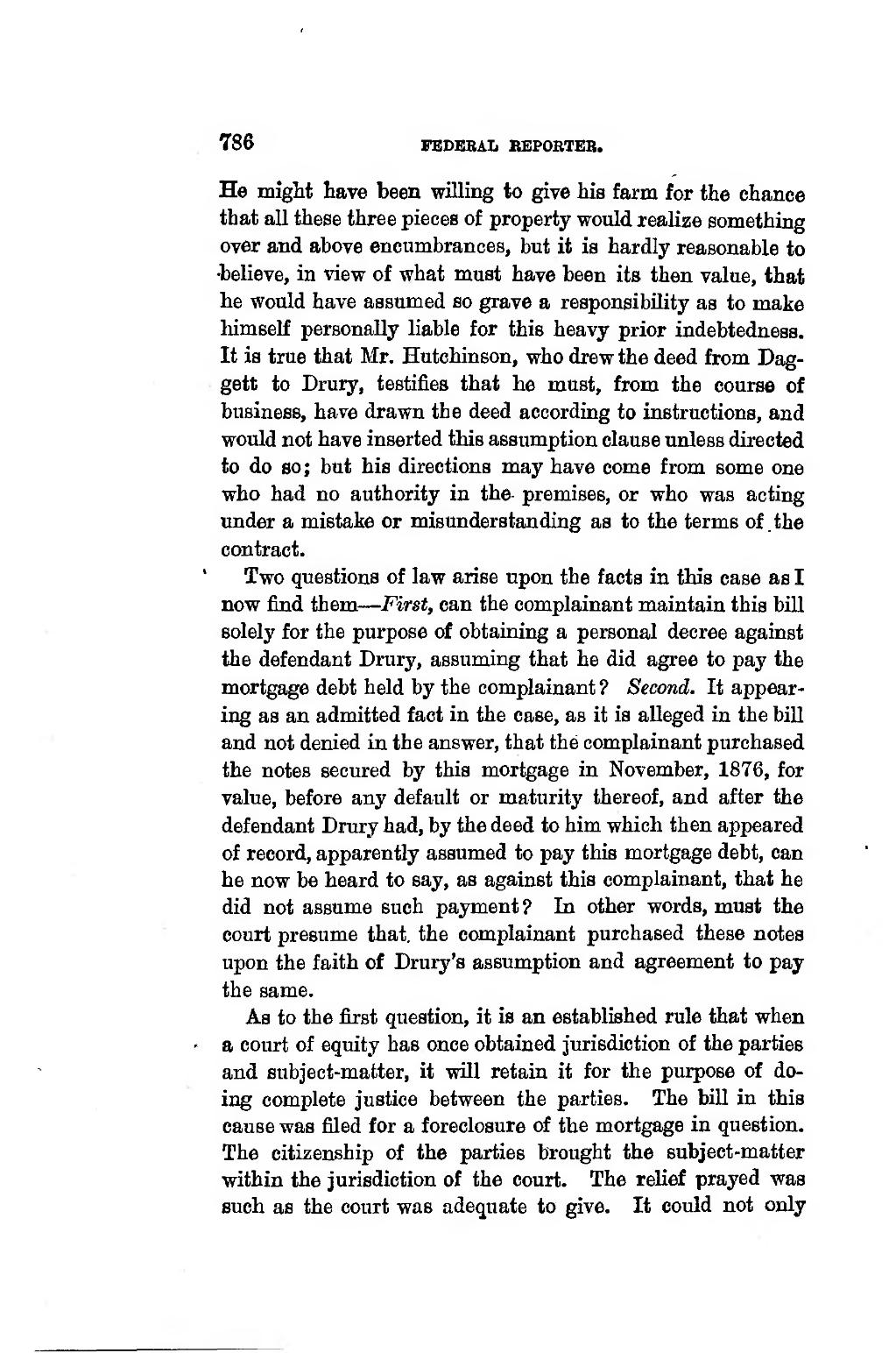786 FBDEBAL EEPORTEB. �He might have been willing to give hia farm for the chance that ail these three pieces of property would xealize something over and above encumbrances, but it is hardly reasonable to •believe, in view of what must have been its then value, that he would have assumed so grave a responsibility as to make himself personally liable for this heavy prior indebtedness. It is true that Mr. Hutchinson, who drew the deed from Dag- gett to Drury, testifies that he must, from the course of business, have drawn the deed according to instructions, and would not have inserted this assumption clause unless directed to do so; but his directions may have come from some one who had no authority in the- premises, or who was acting under a mistake or misunderstanding as to the terms of the contract. �Two questions of law arise upon the facts in this case as I now find them — First, can the complainant maintain this bill solely for the purpose of obtaining a personal decree against the defendant Drury, assuming that he did agree to pay the mortgage debt held by the complainant ? Second. It appear- ing as an admitted fact in the case, as it is alleged in the bill and not denied in the answer, that the complainant purchased the notes secured by this mortgage in November, 1876, for value, before any default or maturity thereof, and after the defendant Drury had, by the deed to him which then appeared of record, apparently assumed to pay this mortgage debt, can he now be heard to say, as against this complainant, that he did not assume such payment ? In other words, must the court presume that, the complainant purchased these notes upon the faith of Drury's assumption and agreement to pay the same. �As to the first question, it is an established rule that when a court of equity has once obtained jurisdiction of the parties and subject-matter, it will retain it for the purpose of do- ing complete justice between the parties. The bill in this cause was filed for a foreclosure of the mortgage in question. The citizenship of the parties brought the subject-matter within the jurisdiction of the court. The relief prayed was such as the court was adequate to give. It could not only ����
